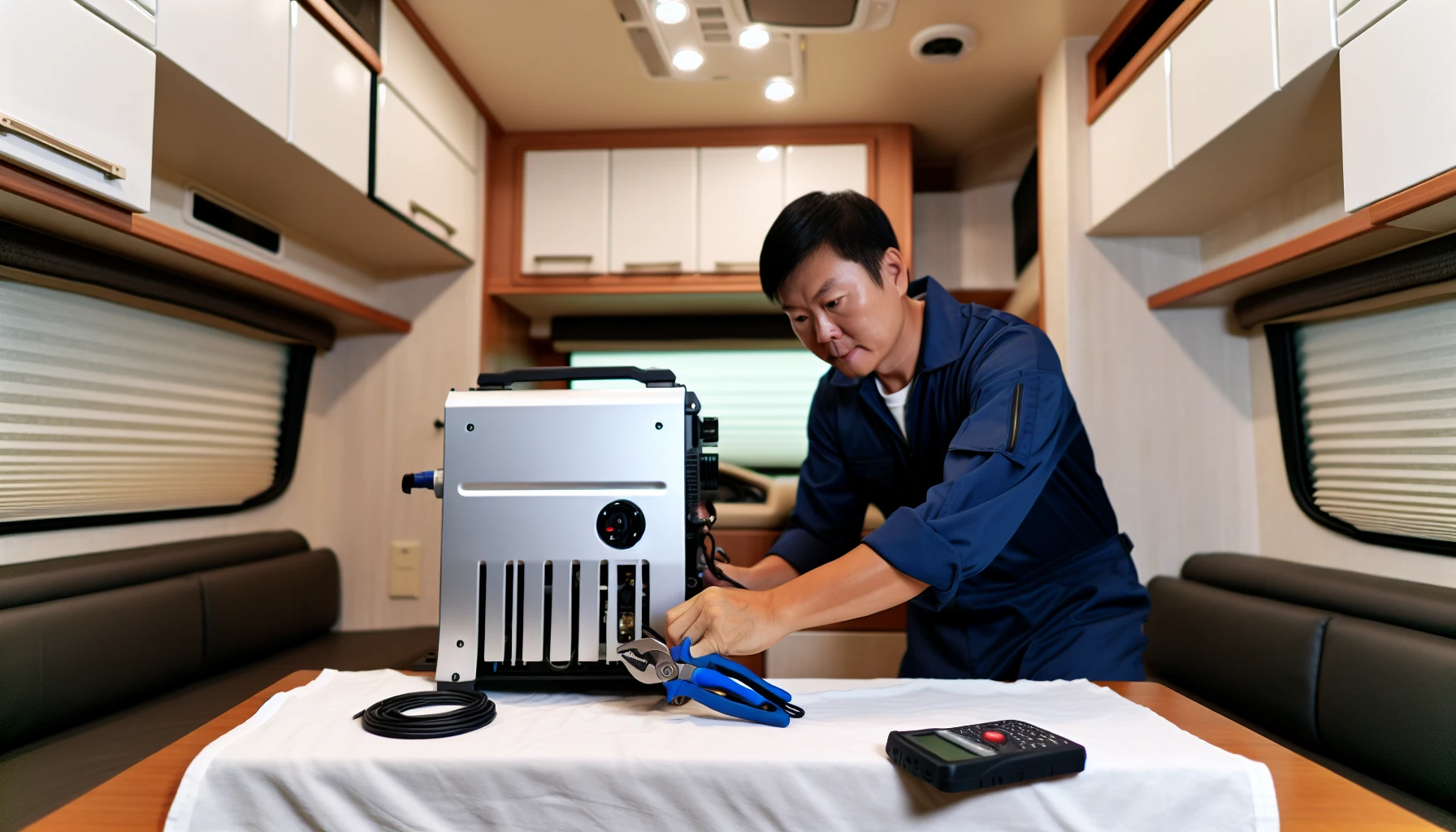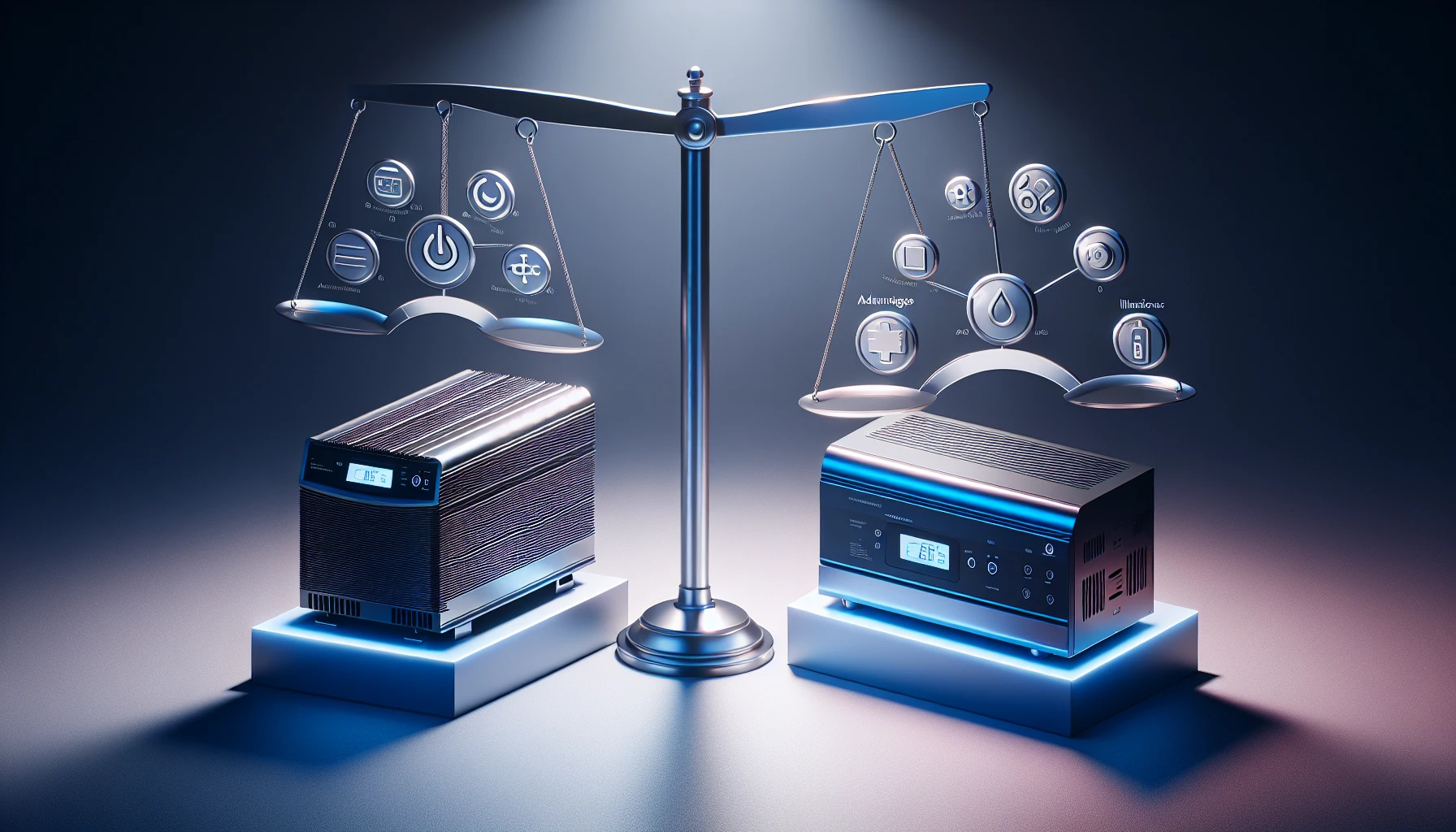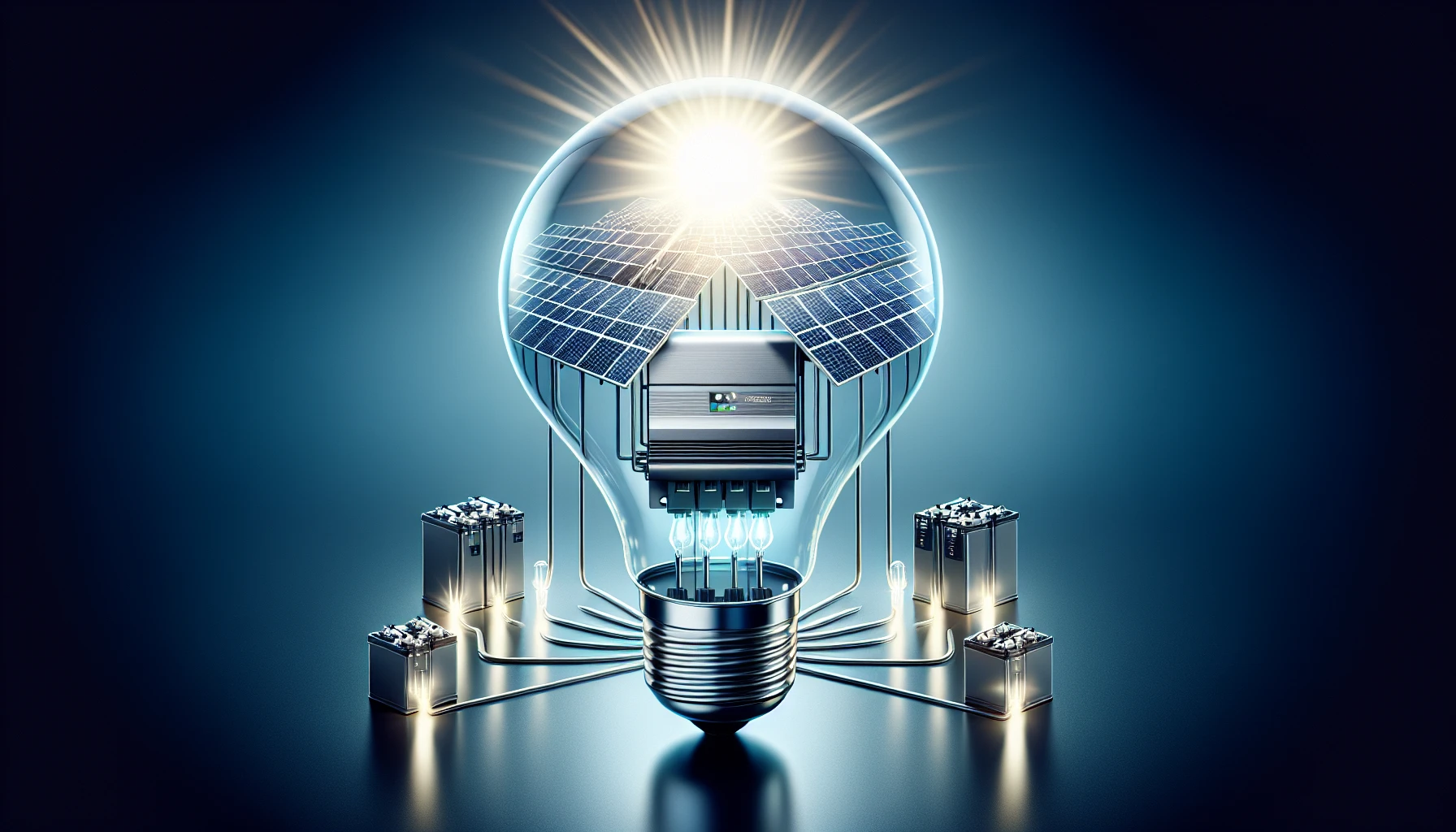
What is an Inverter Charger: Your Essential Guide to Power Conversion and Charging
Imagine a world where you can power your off-grid solar system, RV, or boat with a single device, maximizing efficiency and convenience. Say hello to inverter chargers!
This all-in-one solution combines the functions of an inverter, a converter/charger and a transfer relay to provide seamless power conversion and charging. Don't waste money and space on different appliances that charge the battery bank and invert 12v DC power to 110V power for AC loads.
Invest in an inverter charger and combine the function of each into one single device that will allow you to live without worrying about your power setup.
Are you ready to discover the benefits and applications of inverter chargers? Let’s embark on this journey together and explore “what is an inverter charger”!
KEY TAKEAWAYS
-
Inverter chargers are a versatile power solution used in off-grid systems, RVs and boats.
-
They provide AC power conversion, battery charging and source switching capabilities.
-
An inverter charger offers enhanced surge capacity, efficiency and adaptability compared to standalone inverters but comes at a higher cost and complexity of installation.
Exploring Inverter Chargers: Definition and Functions

Inverter chargers, devices combining the roles of an inverter, converter/charger, and transfer relay, serve as an all-encompassing power solution for off-grid solar systems, RVs, and boats. They are designed to convert DC power to AC power, charge the battery bank, and switch between power sources, making them a popular choice for various applications.
Components of an Inverter Charger
An inverter charger is composed of three main components:
-
The inverter, which transforms DC power into AC power;
-
The converter/charger, which charges the battery bank using DC power;
-
And the transfer relay, which switches between power sources such as shore power, generators and solar power
These components work together to provide a seamless power solution, ensuring efficiency and reliability for off-grid systems, recreational vehicles, and boat or marine vessels.
Applications of Inverter Chargers

Off-grid solar systems, recreational vehicles and marine vessels such as boats commonly use inverter chargers. They provide charging of the battery bank from shore power or a generator, and the inverter converts the DC power to run the AC loads.
This makes inverter chargers an efficient and convenient power solution for various applications.
Standalone Inverters vs. Inverter Chargers: Comparing the Two

You may question the differences between inverter chargers and standalone inverters regarding power conversion and charging. Standalone inverters are designed to convert DC power to AC power, while inverter chargers combine the capabilities of an inverter, converter/charger and transfer relay.
The key difference lies in the versatility and functionality that inverter chargers offer, making them an ideal choice for those seeking a comprehensive power solution.
Advantages of Inverter Chargers
Inverter chargers offer a variety of benefits over standalone inverters, including enhanced surge power capacity, remote monitoring and effortless transitioning between power sources. They offer improved efficiency and adaptability, as they can be used with various power sources and effectively manage the charging process.
This flexibility makes inverter chargers an attractive option for off-grid solar systems, RVs, and boats. With a standalone inverter, you must always turn it on or off accordingly and have a separate converter when you want to charge the battery bank.
Limitations of Inverter Chargers
Although inverter chargers offer numerous benefits, they also have certain limitations. They are typically more expensive than standalone inverters and their installation can be more complex.
However, the added functionality and convenience often outweigh these drawbacks, making inverter chargers a valuable investment for many power systems.
Factors to Consider When Choosing an Inverter Charger
Choosing an appropriate inverter charger for your requirements is key to an efficient and dependable power system. Factors to consider when choosing an inverter charger include:
-
Power capacity
-
Type of waveform
-
Efficiency
-
Battery voltage compatibility
-
Surge capacity
-
Battery charging capability
-
Automatic transfer switch functionality
Considering these factors will help you make an informed decision and ensure that your power system meets your needs.
Sizing Your Inverter Charger
Correctly sizing your inverter charger is necessary to ensure its optimal performance and longevity. This involves determining the power requirements of your appliances and the capacity of your battery bank.
Proper sizing guarantees that the inverter charger can handle the power demands of your devices or system, reducing the likelihood of inverter clipping and ensuring maximum efficiency and performance.
Compatibility with Solar Power Systems
Inverter chargers might require extra components like a solar charge controller, though they are generally compatible with solar power systems.
When integrating an inverter charger into an existing solar power system, it is important to install a selector switch on the battery side and an On-Off switch on the panel side to control power flow and solar power input. This ensures seamless integration and optimal performance of your inverter charger with your solar power system.
Hybrid Inverters: An Alternative Solution

Hybrid inverters are an alternative solution that combines the functions of an inverter charger and a solar charge controller. These versatile devices are designed to work with both solar panels and battery storage systems, offering a complete solar solution for those seeking a comprehensive power management system.
How Hybrid Inverters Work
Hybrid inverters have the following features:
-
They charge backup batteries using AC power from the grid or a generator.
-
They incorporate solar panels for a comprehensive solar solution.
-
They can convert DC power from solar panels into AC power for immediate use or storage in batteries.
-
They allow for the efficient utilization of solar energy.
-
They can power loads both on-grid and off-grid.
Benefits of Hybrid Inverters
Benefits of hybrid inverters include enhanced efficiency, simpler system complexity, and the capacity to utilize various power sources. By combining the functions of a solar inverter and a battery inverter into one unit, hybrid inverters streamline the overall system design and installation process, making them an appealing option for those seeking a comprehensive power solution.
Installation and Maintenance Tips for Inverter Chargers

Correct installation and maintenance practices are key to ensuring the longevity and peak performance of your inverter charger. By following recommended practices and guidelines, you can prevent potential issues and keep your power system running smoothly.
Professional Installation
Given the complexity of inverter chargers and the potential safety risks from incorrect installation, it is strongly advised to seek professional services for installation. A qualified professional will:
-
Ensure correct wiring and connection to the battery bank
-
Optimize system safety and efficiency
-
Integrate the inverter charger with other electrical components and systems
Routine Maintenance and Troubleshooting
Consistent maintenance and troubleshooting are key to maintaining the performance and longevity of your inverter charger. This includes:
-
Visually inspecting the batteries for cracks, leaks, or swelling and replacing if necessary
-
Cleaning the inverter charger to keep it free of any dirt or debris
-
Periodically inspecting the inverter for signs of wear and tear, such as damaged wires or loose connections
-
Regularly inspecting and ensuring all electrical connections are securely tightened.
Summary
Inverter chargers offer a versatile and efficient power solution for off-grid solar systems, RVs, and boats. By understanding their components, applications, and potential limitations, you can make an informed decision when selecting the right inverter charger for your needs.
With proper installation and maintenance, your inverter charger can provide reliable power and charging capabilities for years to come. So, why wait? Embrace the convenience and efficiency of inverter chargers today!
|
NEED MORE ASSISTANCE PLANNING YOUR POWER SETUP?
GIVE US A CALL AT 303-968-1366 AND OUR TEAM WILL HELP YOU GET STARTED!
|
Frequently Asked Questions
What does an RV inverter do?
An RV inverter converts DC power from the RV battery bank into AC power, allowing for the operation of electronics such as TVs, laptops, microwaves and other appliances. Inverters make the types of power between the two sources compatible, making them essential components for any RV.
What does a converter do in an RV?
A converter in an RV reduces 120 volts AC to 12 volts DC, allowing 12-volt appliances and accessories to be powered.
What is the main function of an inverter charger?
An inverter charger's primary purpose is to convert DC power into AC power, charge a battery bank, and switch between different power sources such as shore power or a generator.
Can inverter chargers be used with solar power systems?
Yes, inverter chargers can be used with solar power systems, but may require additional components such as a solar charge controller for compatibility.
What are the benefits of using a hybrid inverter?
Using a hybrid inverter provides increased efficiency, decreased complexity and the ability to use multiple power sources, making it a great choice for a renewable energy system.